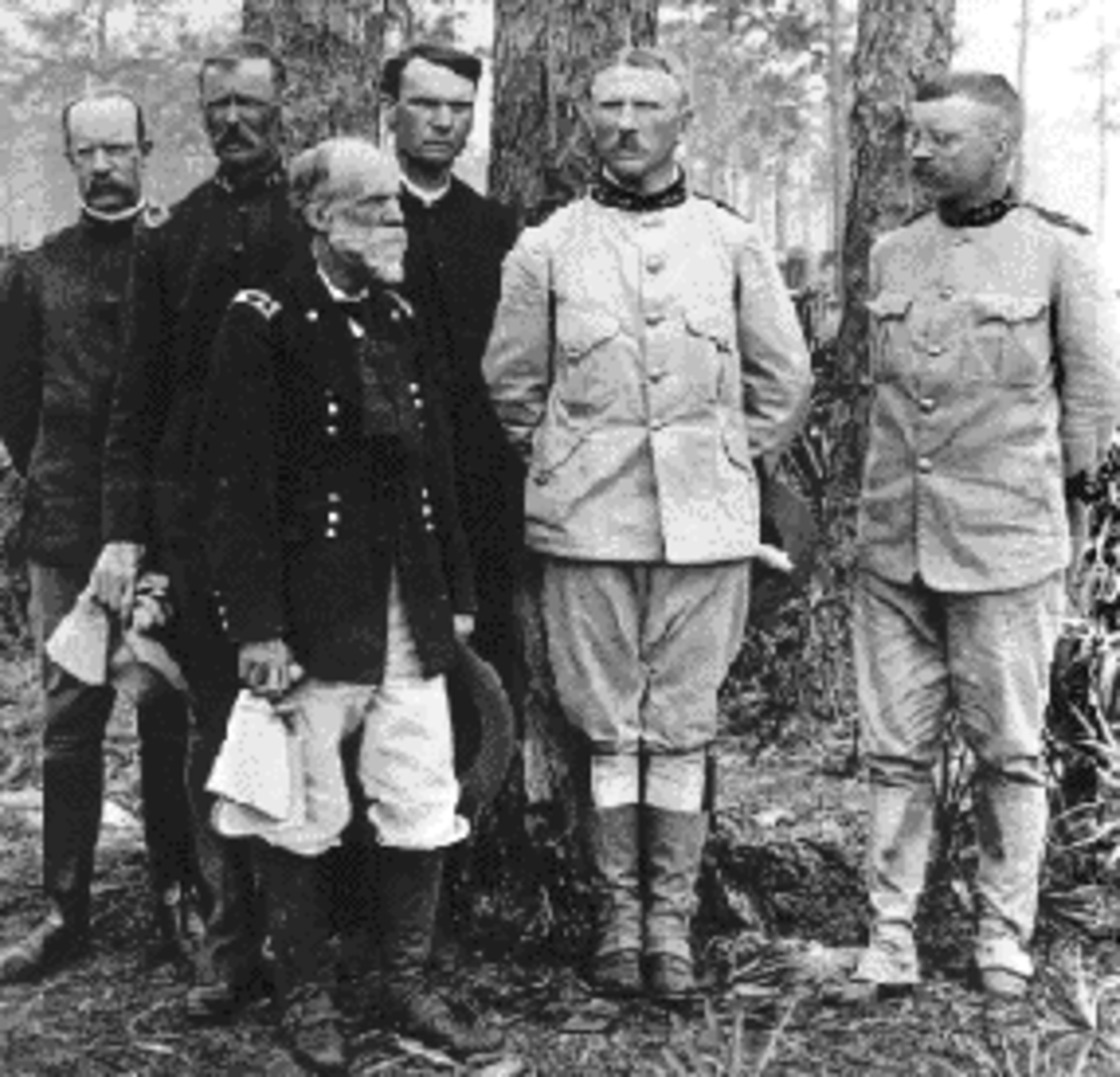The Wikipedia Odyssey: 2001 and Beyond

"Imagine a world in which every single person on the planet is given free access to the sum of all human knowledge. That's what we're doing." --Jimmy Wales, Wikipedia co-founder
"People rely on Wikipedia, and a lot of it is wrong. But because there it is on the Internet, they assume it's right. Rumor gets printed as fact. We may have lost our critical facility as a nation." --Ben Mezrich, writer
The dream of vast, free knowledge versus how reliable and trustworthy it can be. Those two conflicting points of view seem to stand on each corner of the Wikipedia boxing ring. Regardless of where you stand on that ring, you have to acknowledge the impact that the "free encyclopedia" has had in research, education, web surfing, or just simple curiosity. But let's see where it all started.
Wikipedia was born
Wikipedia was officially launched in January 2001 by Jimmy Wales and Larry Sanger. Before that, wikis (which means "quick" in Hawaii) were already used in corporate environments, but they never became widespread. Wales and Sanger's idea was to create an alternative to the traditional encyclopedia, which was usually prepared by scholars and experts of certain subjects. Wikipedia, on the other hand, is constantly edited by its own users, allowing for a more open and varied content.
With time, the Wikipedia phenomenon blew up into one of the most popular websites ever (it is constantly ranked in the Top 10 of popular websites, according to Alexa). It is available in almost 300 languages, all of which feature a total of close to 40 million articles (5 in the English Wikipedia), and has a vast amount of editors and users.

But Wikipedia's huge popularity and broad scope is perhaps counter-balanced by the criticism it receives for its user-edited nature, which many people – like Mezrich in the opening quote – consider unreliable. Here in Puerto Rico, teachers aren't supposed to consider Wikipedia references in their students' assignments and projects, whereas Hubber bethperry asked a question here a couple of days ago about our feelings on educators recommending Wikipedia as a resource for their students' home work.
And although lots of people see Wikipedia's editable nature as reason enough to dismiss it, I think it's reason enough to embrace it. In a time and generation where books, libraries, and encyclopedias have become nearly obsolete, Wikipedia opens up a whole world of diverse, dynamic knowledge to anyone. And that sums up two of its biggest advantages for me.

Wikipedia is diverse
Wikipedia is not limited in its scope and breadth. You are bound to find almost anything, ANYTHING, within its pages. Articles range from Barack Obama or Christopher Columbus to a list of cricketers banned for match fixing or a list of characters from The Sopranos. The fact that is user-edited gives anyone the chance to contribute and create any article you deem valuable or worthy enough. That ability to cover a lot of diverse topics and grow sets the free encyclopedia apart from other resources which can seem limited in scope to some, and whose growth is dependent on external forces.
Wikipedia is dynamic
But Wikipedia's ability to grow also says also a lot about its dynamic nature. Its content is far from static; always changing, always updated. Whereas former resources, like an Encarta CD-ROM, weren't able to reflect changes in its content, Wikipedia updates faster than any news program. From articles about TV episodes just broadcast, sports games just finished, notable people that just died, or world events that just occurred, Wikipedia allows users to constantly update articles to reflect changes around the world. Geography buffs can find information about the establishment of South Sudan as an independent country, while sports fans can instantly see who won the 2013 NBA Finals or who was picked first in the latest draft. The access to constantly updated information is invaluable, regardless of where it comes.
Wikipedia as a Social Experiment
But despite those two strengths, I think Wikipedia's biggest achievement comes from the logistics behind its existence and its social background. Despite being founded by Wales and Sanger, and having a workforce of little more than 100 people, Wikipedia's existence depends solely on the editor itself. The one that's sitting in his home, writing about the properties of Zinc, or the one that signed up from a cyber cafe to write the plot of a Game of Thrones episode.
The fact that thousands of editors can get together to collaborate, manage, and protect such a vast project, says a lot about us as human beings. The establishment of the "backstage" politics of Wikipedia, created and enforced by the users themselves, is an impressive accomplishment in the Web 2.0 generation. Is there ground to improve? Of course, there is. But for a project that has little over 10 years and such a vast reach, I think it's a unique achievement.

From everyday tasks like determining the notability of an article or moderating an "edit war", to maintaining and monitoring long-term tasks like projects to improve or enhance certain groups of articles, to launching huge global projects and gatherings, most of it falls on the hands of the editors and users of the site, which voluntarily push these initiatives forward. These principles of global collaboration and social integration between different users all around the world that have nothing to gain out of it, should be something to embrace.
To see this happen, in a time where some businesses can't even agree on the release date of a product, or the coversheet for their weekly TPS reports, should be remarkable, regardless of whether you agree or disagree with the end result. Moreover, I think it's diverse input of knowledge gives it more credibility than some newspapers and channels that are subject to corporate agendas and political changes.
I don't work for the Wikimedia Foundation, nor am I a moderator or administrator on it. But as a frequent reader and editor, I respect the goals that it wants to achieve and admire the efforts of the website and its editors to reach those goals. Because of this, I feel that a swift dismissal of EVERYTHING on Wikipedia shouldn't be the reaction to it. I do agree that there are still things to work on it, and that's part of the beauty of it, because it's an ever-changing project; and I do think that people should always look for additional sources for their information. But that's not different from what most researchers do with any single source. To automatically discard all of the information in it is tantamount to challenging the knowledge of thousands of people around the world with a single blow.
I think Wikipedia deserves a chance to be considered first as a worthy example of mutual collaboration, and then as a good source of varied information. With the success and popularity that the website has had among regular Internet users, and the grasp it has on typical Internet searches, we have to accept the website is here to stay. And it's improvement, just like its creation and growth, it's up to "us".
NOTE: Thief12 has been a frequent editor on Wikipedia since 2005, and has more than 20,000 edits on the website.
In Wikipedia We Trust?
How much do you trust the information in Wikipedia?
More hubs about technology...
- The Internet or the Web?: Getting the terms right
More often than not, these two terms get confused in the mix. Here is a look at what each of them means as well as a brief history on both. - Vista: The black sheep of the Windows family?
Microsoft's 2007 operating system is bound to ride out in the sunset with a tarnished reputation. But is it warranted? - Malware: What is it and how to deal with it
Are you protecting yourself from malware? Do you even know what it is? Read the following article to find out a bit more about this threat, and how you should prepare yourself. - Pirates of Silicon Valley: The rise of Steve Jobs an...
TNT's dramatization of the birth of Microsoft and Apple follows the lives of Jobs and Gates as they set to change the world forever while trying to





